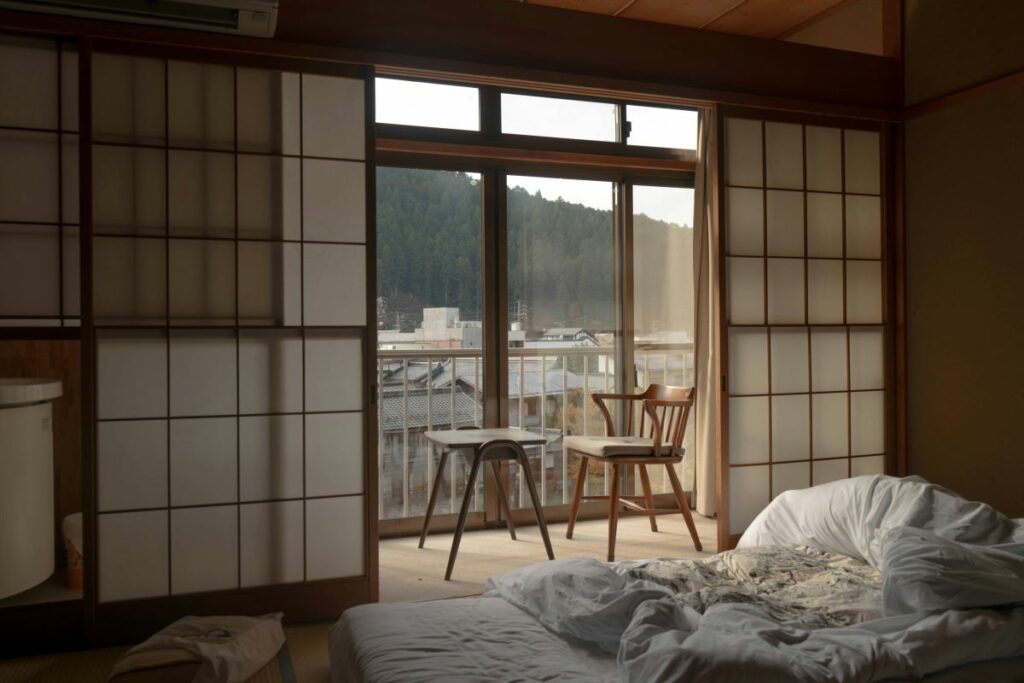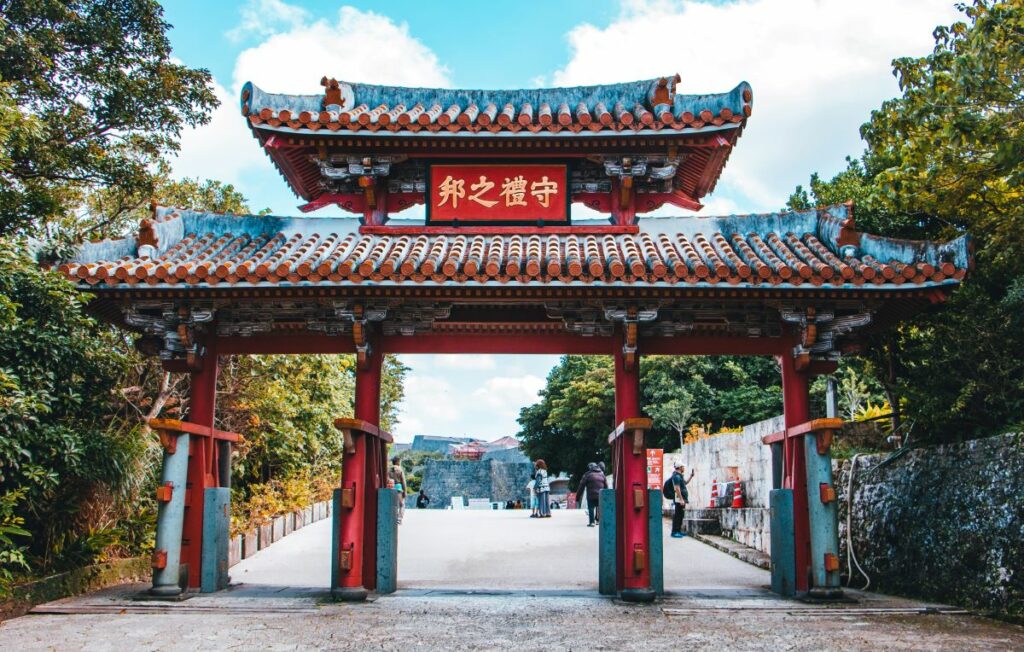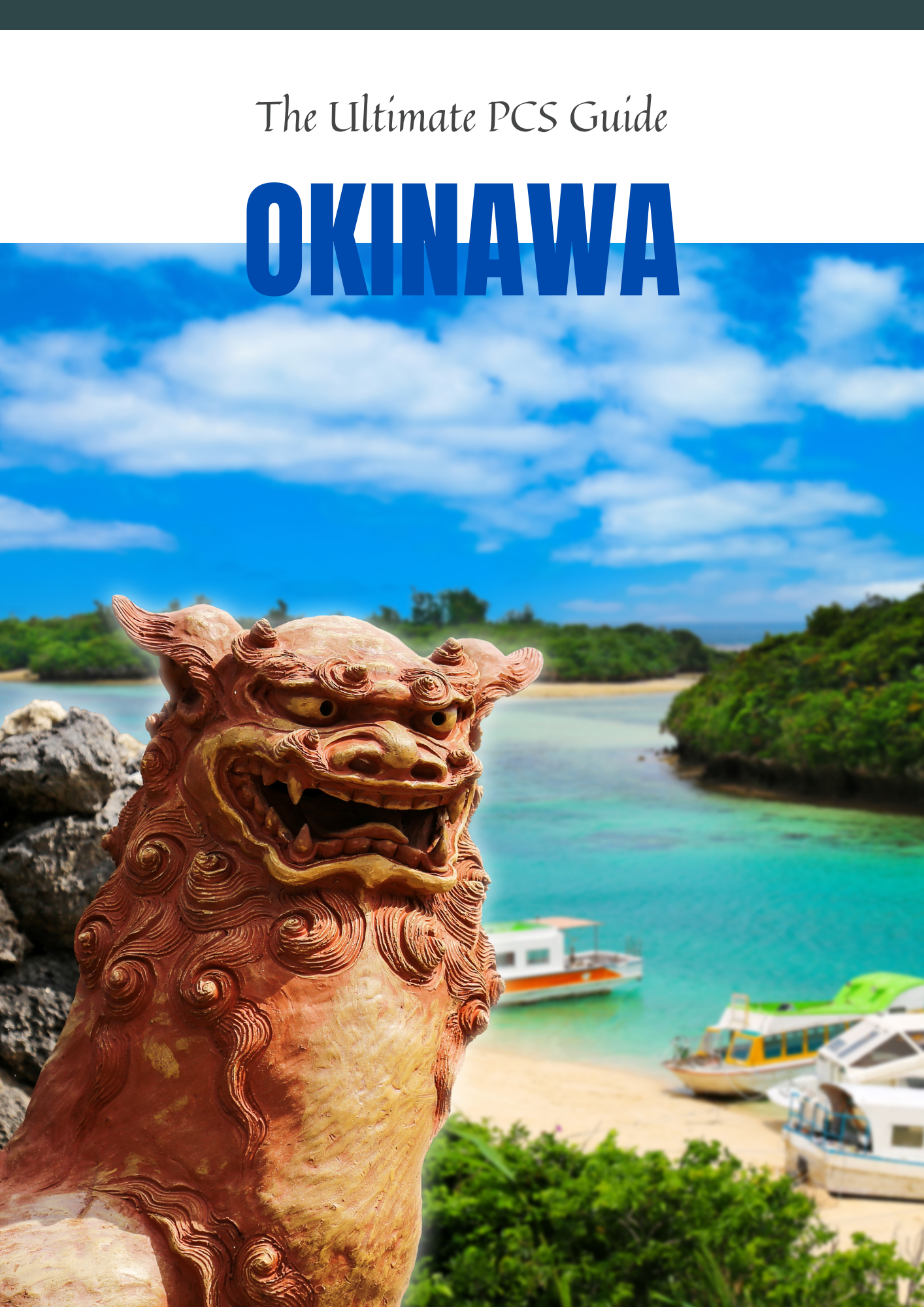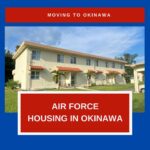Chances are, you are going to live on base when you PCS here, but there is always the chance you could end up off base in Okinawa. With the policy “Live Where You Work” in place, you are assigned two different bases as housing options depending on the servicemembers assigned duty station. If both of those housing areas are at 98% capacity for the servicemembers rank, you will most likely be told you’ll need to find alternate housing off base.
On the other hand, maybe you were assigned housing on base and it’s just not for you. After 12 months of living on base, you can apply to move off base as long as housing for the servicemembers rank is around 98% capacity.
Regardless of which way you are approaching off base living, this article will give you an idea of the good, the bad, and the weird of living off base in Okinawa, Japan.
CONS TO LIVING OFF BASE IN OKINAWA
I always like the bad news first! Here are some of the biggest disparities between living on base and living among the amazing and friendly Japanese.
TRAFFIC AND THE COMMUTE
When living off base in Okinawa, I hope you consider the commute when deciding where to live. This is a tricky situation as the island may seem small but considering that speed limits are VERY slow compared to the United States, it can take you a lot longer to go shorter distances.
There is also not much in the way of public transportation here on the island. There is a bus system throughout the island and a monorail in the southern portion, but not routes you can utilize for commuting to work.

Most people on the island own a car and that creates a lot of congestion, especially during rush hours in the morning and evening. In the morning, the base gates will back up the local roadways and in the evening hours, the base roads are backed up as people are trying to leave through the gates to get home. Many plan their commute times to avoid the high congestion hours but this can become an artform.
Some Marines also opt to ride their bikes to work. This can save you from sitting in traffic and knock out a work out sesh at the same time.
An alternate route to consider is the 58 expressway. While this may help cut down on traffic on the smaller roads, this can also get expensive since it is a toll road. Like most toll roads, what you pay is determined by how long you were on the road. This can be a daily expense or just on the days you’re late for work, but it is an expense to consider when living off base.
SMALLER HOUSING OPTIONS

Smaller housing is something a lot of people warned me about after getting orders to Okinawa. There are a few diamonds in the rough on the island but more times than not most of the housing options are going to be smaller than your typical housing option in the United States. Before moving to the island, you’ll be given an option for long term storage and many take advantage of this. Some people may come to the island prepared and hoping to live off base but others are going to be forced into off base living if housing is at capacity. In that case, you may find yourself in a sea of boxes jammed into your 1000 sq ft apartment because you chose the ocean view high rise over a 2000 sq ft house in the mountains. Our Ashley furniture sectional did not fit through the stairwell or into our elevator and we ended up having the moving company trash it for us (at a cost of $240 for bulk trash disposal, more on that later…). While our couch was old and ready to be retired, others who have had furniture they want to keep have hired cranes to have it lifted and brought in through balcony doors. Have no fear, though, if you find yourself in a smaller-than-planned home or apartment, there are many thrift stores on the island eager to collect the things you might need to get rid of!
LANGUAGE & CULTURAL BARRIERS
As I sit here using Google Translate on my phone trying to figure out the miscommunication issue with our maintenance company, the language barrier may be the biggest con to living off base in Okinawa. Between cultural differences and language differences, communication between you and your housing company, internet company, phone service company, or housing maintenance company could be a challenge. While none of it is malicious, trying to communicate through the language barrier can be frustrating. It’s best to regroup, download Google Translate, and not be afraid to type out your next sentence in the app. The Japanese may be as frustrated as you that you aren’t understanding them. Most Japanese work very hard at learning a small amount of English since there is such a huge presence of English speaking people on the island. The least we can do is learn a little ourselves and have a translation app ready for when we cannot communicate properly. In fact, most Japanese are ready with their own translation app and it’s not uncommon to see an American and a Japanese having a silent conversation in stores about the 47 different varieties of milk or soy sauce on the shelf.
The cultural barriers come in all sizes as well. Things as simple as the concept of using chalk on the sidewalk can create issues if you aren’t aware of the cultural differences. And yes, this is a true story! My kids, along with a few other American kids in our apartment complex, used sidewalk chalk all over the parking garage and we were contacted through our housing agency asking to stop as it was considered graffiti. We all kindly explained it is a common practice in America as an innocent childhood activity and they asked us to use water to clean it off if we wanted to do it in the future. Understanding that the Japanese bow instead of wave, will pull out in front of you while driving because there is an unspoken rule similar to the 1 for 1 merging rule in America, and any of the many cultural differences will help when living off base and immersed in the local culture.
PETS
Many people choose to wait for base housing because they have larger dogs and prefer to have a yard for them. While it is possible to find properties with small yards, the problem lies more in that many building owners do not allow pets. Some places only allow cats or have a size limit for dogs. If you have pets, this is something to consider if off base living is in your cards.
UTILITY COSTS

Living off base in Okinawa, you are responsible for your utilities just like living off base in the United States. You are allotted money towards utilities if you are approved for off base housing but chances are this will only cover a portion of what you will pay. Utility costs are very dependent on the type of home you move into. If you live in a larger single family home, you are going to run a high electric bill in the warmer summer months. If you live in an apartment but it’s an end unit with a lot of windows and direct sun, your electric bill will be higher. If you have a lot of people in your family who like to take long, hot showers, your water and gas bill will be higher. Be mindful of the size of the home you choose and be prepared for high utility costs if you live in a bigger home.
Paying utilities can seem daunting in a foreign country but GI Bill Pay can make it easy. This is a simple service available at a small fee that you can wrap all your utility and rent costs into one easy payment. Some opt for this while others opt to pay on their own through any of the local convenience stores. Paying everything on your own saves you the cost of using the GI Bill Pay service but isn’t as convenient so it just depends on your comfort level and financial situation.
NO HOLES IN THE WALLS
If you are someone who loves to hang things on the walls, off base living is going to be rough. Some places have painted walls so you may be able to get away with command strips for lighter decor, but most have wallpaper and anything sticky will just destroy it. Most housing agencies include this in their lease agreements. Make sure to note whether your lease includes this, and it might be a major bullet point or hidden in the small print. You don’t want to dish out money when you move out. Buy some tall shelving and set your frames and decor on that instead.
HIGH COST: MOVE-IN AND MOVE-OUT
Let me start by saying that if you have orders to Okinawa, start saving all the money you can immediately! If you sell vehicles, save that money for your expenses when you move to the island. One of the things about living off base is that when moving in, for some agencies you are going to be expected to pay first month’s rent, last month’s rent, AND an agency fee (similar to a security deposit). Other agencies may only require you to pay the first month’s rent and the agency fee. This is also going to be the same time you are buying vehicles, so living off base, especially unexpectedly, can really put families in a financial bind. If you need assistance, there are ways to get advances for these payments or loans through the Navy Marine Corps Relief Society. You will be expected to front these move-in costs but once your OHA hits your account it’ll reimburse you what you paid for the first month’s rent. The agency fee is also reimbursable by filling out some paperwork through the Kadena Housing office.
On the flipside and something you can prepare for should you find yourself living off base in Okinawa, are the high move out costs you may incur. There is a cultural difference and we as military families can be used to a very lenient move out process where nail holes and scratches on the floor are just another thing maintenance will fix for the next family. That is not the case here and “normal wear and tear” really doesn’t exist. The Japanese pride themselves in the condition of their belongings and expect you to take care of the home you are renting like they would. Scratches on the floors from big dogs, marks on the walls from kids, stains on the counters and dirty appliances can land you charges when you move out. Best to be prepared to have to pay a hefty charge when you move out.
TRASH: IT’S COMPLICATED
Okinawa is an island and the Japanese are a trash-conscious culture. It will take some getting used to, but living off base comes with learning the ABCs of trash sorting. Each town has their own color and label for trash bags, CLEAR trash bags to be exact. Everything must be in clear trash bags. The basic sorted groups for trash are burnable, non-burnable, clear plastics, cans, clear glass, and cardboard. Each needs to be sorted into its own bag except cardboard which can be put in a larger cardboard box or tied together with twine. Trash collection is thankfully more often than Americans are used to and, depending on the town, could come up to 4 times a week.
Bulk trash is a bit more difficult off base as well. You can’t just put it on the curb and expect it to get picked up. You will need to call your housing agency or one of the many bulk trash collecting businesses on the island to schedule a pick up and get a price quote based on what you are trashing. A small haul starts around $50 and it will go up from there depending on the size and whether it is electronic or an appliance.
PROS TO LIVING OFF BASE IN OKINAWA
Now that I have thoroughly scared you from living off base, let’s dive into the best reasons for living off base!
IMMERSED IN THE CULTURE

This is easily my top pro for living off base in Okinawa. You are living among the locals. You go out your front door and everything is Japanese. While some areas are Americanized, living off base has a very different feel. Each community has their own traditions, announcements, and bells. Most have a bell or song on the loudspeakers at noon and 5pm. And this isn’t like the loudspeakers you would hear colors on, these are not actually loud and disrupting but more of a homey, pleasant sounding announcement. You’ll also see local traditions played out depending on the time of year right in your community. There are markets and festivals for every holiday here and you’ll never be able to miss when there is a holiday because the day before the traffic is horrendous and the day of the holiday it is a ghost town on the roads and a party at the parks and beaches! Sundays are for family and this is evident at any park or beach and has quickly become a tradition for us as well.
MORE DIRECT ACCESS TO AMENITIES
Yes, you can drive off base to enjoy the local shops, cafes, and beaches but you can’t beat having a konbini (a Japanese convenience store like Lawson, 7/11 or Family Mart) on the corner when you’re craving an onigiri or pizza bun. Living off base in Okinawa could also provide you direct access to a beach and a home with an ocean view. If you choose to live in a walkable, more urban area, you won’t have to worry about the “not one drop” drinking and driving policy since you’ll be able to walk to get a drink with your spouse or friends. You’ll be able to walk down your street and go to a local grocery store or convenience store and shop like the locals. The local restaurants and grocery stores are an adventure in and of themselves!
THE COLLECTIVE COMMUNITY
Japanese culture is centered very much on protecting the young and the old. Children here are given so much responsibility at a young age. They are taught how to safely cross streets and shop at the grocery store by themselves starting at 3 or 4 years old. Kids wear certain kids to signal their age or that they may need special assistance. I routinely see 5, 6, and 7 year olds walking home from elementary school by themselves or in groups of friends. It is so safe to be anywhere with your kids. Many American kids living off base have more freedom and privilege than their counterparts in the states or even on base because of the widespread culture of respect for others. I have never once felt mine or my kids’ safety threatened. It’s almost counterintuitive because you are a foreigner living in a host country. You automatically want to be on guard since you feel like you do not belong, so it may take a while but the sense of safety and security you can feel off base if you allow it is top notch.
AMAZON JAPAN
One privilege to living off base is being able to apply for Amazon Japan and forgoing the American postal system all together. You can get packages directly to your doorstep and not need to wait the typical two-week shipping window using Amazon US. The local Japanese post offices are great at answering questions and helping you when you need it. Don’t forget about that Google Translate app!
AWAY FROM MILITARY LIFE
Not everyone will find this a pro but many like to “leave work at work”. Living off base gives you the opportunity to separate yourself from your job and military and relax. Depending on where you live, you may have a small population of other Americans living around you so you won’t be alone and will have the option of befriending neighbors. Meeting your Japanese neighbors is also something you can consider and can lead to some neat experiences and lifelong friendships.
YOU COULD FIND A BIGGER HOUSE
Most of the houses on base are smaller than many would like. If you end up off base and you like to have space, you’re in luck. I mentioned in the cons how houses off base are smaller but you CAN choose to find a house that is larger, with more storage space, a garage, and a big yard. There aren’t many, but if you are willing to have a longer commute and trade in less amenities close by, finding a larger, Americanized house is definitely possible. Just be aware that with a larger house comes higher utilities costs.
LOCATION, LOCATION, LOCATION!
It’s always about location, right? Living off base gives you OPTIONS. Want an ocean view in a high rise apartment? There’s a place for that. Want to live in the woods, surrounded by nature? There’s an option for that. Diving, surfing, hiking, walking, biking, foodie…whatever suits your lifestyle, you have the option to find a home that will give you all the joy your life deserves. This also pertains to schools, too. If you’ve done research and are particular to what schools your kids will attend, then you can look for a home within that school zone.
CONCLUSION
In the end, living off base in Okinawa is an adventure. If you are open-minded, it can be one of the best adventures of your life. There are so many things to consider when moving off base and I hope this article helped answer some of your questions. Now, excuse me while I go walk to the Family Mart on the corner for my afternoon pick me up Iced Latte for ¥250…
Looking for more? Check out these other popular articles on moving to Okinawa.

Want all this information in one spot? Grab our FREE Ultimate PCS Guide to Okinawa!
Drop your email and we will send you an ebook version of our guide, as well as send you updates on things to do here in Okinawa!






